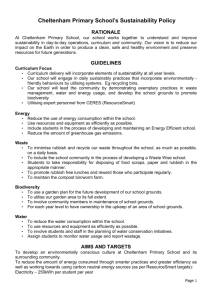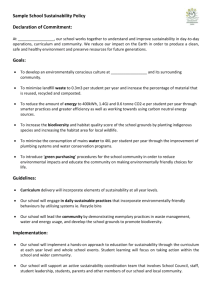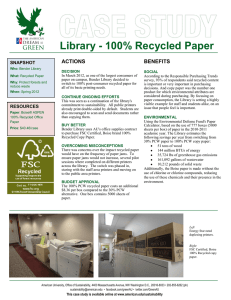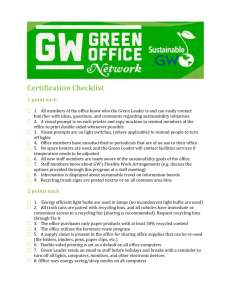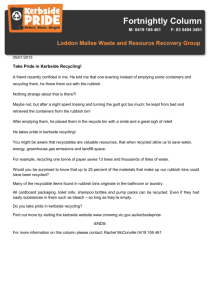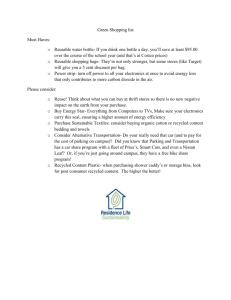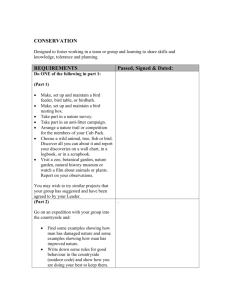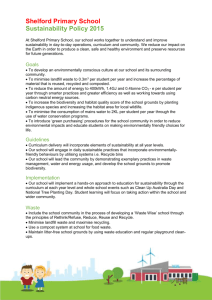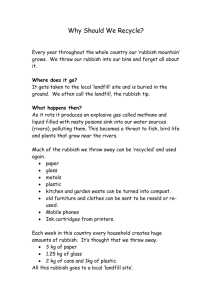Stonnington Primary Schools Environmental Policy
advertisement
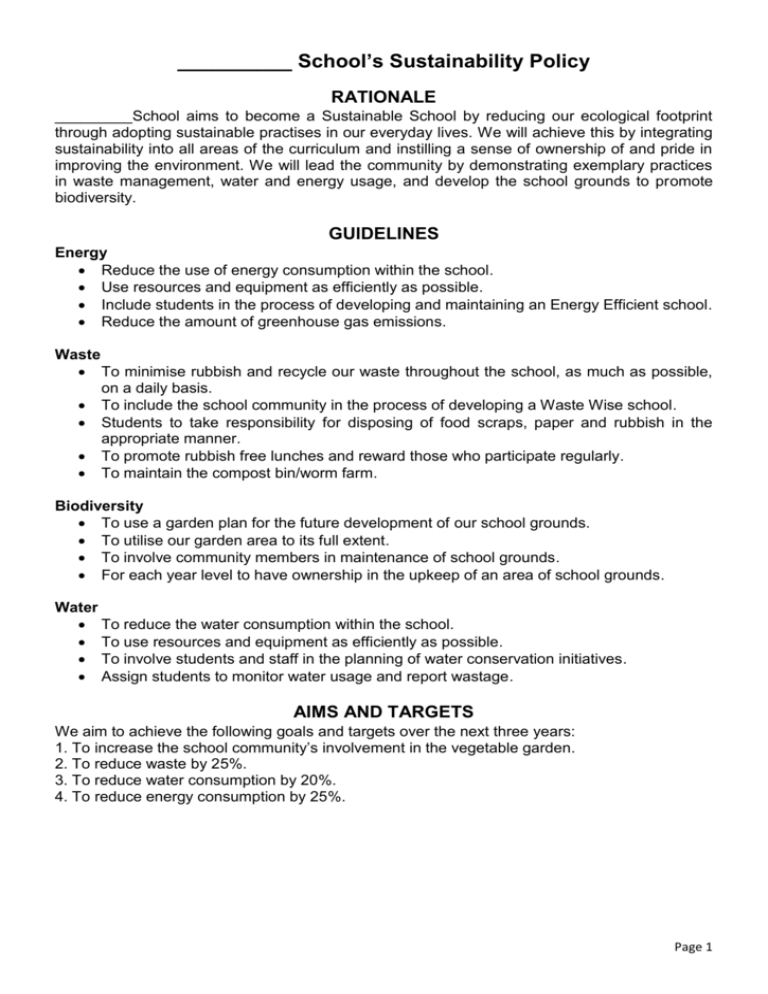
__________ School’s Sustainability Policy RATIONALE _________School aims to become a Sustainable School by reducing our ecological footprint through adopting sustainable practises in our everyday lives. We will achieve this by integrating sustainability into all areas of the curriculum and instilling a sense of ownership of and pride in improving the environment. We will lead the community by demonstrating exemplary practices in waste management, water and energy usage, and develop the school grounds to promote biodiversity. GUIDELINES Energy Reduce the use of energy consumption within the school. Use resources and equipment as efficiently as possible. Include students in the process of developing and maintaining an Energy Efficient school. Reduce the amount of greenhouse gas emissions. Waste To minimise rubbish and recycle our waste throughout the school, as much as possible, on a daily basis. To include the school community in the process of developing a Waste Wise school. Students to take responsibility for disposing of food scraps, paper and rubbish in the appropriate manner. To promote rubbish free lunches and reward those who participate regularly. To maintain the compost bin/worm farm. Biodiversity To use a garden plan for the future development of our school grounds. To utilise our garden area to its full extent. To involve community members in maintenance of school grounds. For each year level to have ownership in the upkeep of an area of school grounds. Water To reduce the water consumption within the school. To use resources and equipment as efficiently as possible. To involve students and staff in the planning of water conservation initiatives. Assign students to monitor water usage and report wastage. AIMS AND TARGETS We aim to achieve the following goals and targets over the next three years: 1. To increase the school community’s involvement in the vegetable garden. 2. To reduce waste by 25%. 3. To reduce water consumption by 20%. 4. To reduce energy consumption by 25%. Page 1 IMPLEMENTATION CURRICULUM FOCUS There will be an environmental focus incorporated into the inquiry unit across all year levels. Energy To promote a ‘switch off and save’ policy for technological equipment, lighting and heating/cooling. Students to engage in units of work relating to energy. Students will investigate the best ways to conserve energy. Waste To assign students to dispose of waste and recycled products daily in the appropriate manner. To assign students to monitor rubbish free lunches and each term award the class who has the most rubbish free lunches. For monitors to collect food waste daily and transfer it to the compost bin. For students to dispose of paper into recycling bins. Use recycled paper for printers, photocopiers and Eco-Pads. Promote the reuse principle of paper in classrooms, staffroom and office. Biodiversity Consult local community members on ways to improve our garden (e.g. Where to plant, what to plant). Involve community members in planting and maintaining our gardens. Engage students and staff in the maintenance of our gardens. To grow and harvest a range of vegetables/herbs to be utilised in cooking classes. Water To promote a ‘water-wise turn off’ policy. Students to engage in units of work relating to water conservation. To assign students to monitor water usage and report wastage. Plant trees and plants that require minimal watering. COMMUNITY INVOLVEMENT We will encourage community participation in environmental projects undertaken, as well as, invite parents with expertise to help maintain and improve our school environment. We will also promote sustainable living through educating the school community through our students. All people within our school will be informed and responsible for implementing these programs. The various committees in conjunction with the Principal will be responsible for keeping records and reporting on the outcomes and progress of each program to the whole school community, through school newsletters and the annual report. The parties involved will provide reports to staff and School Council outlining the goals, aims, costing, savings and other relevant issues. EVALUATION This policy will be reviewed as part of the school’s four year review cycle. This sustainability policy example has been provided by CERES. Page 2 __________ School’s Green Procurement Policy RATIONALE ________ School is committed to sustainable practices within its community. It will endeavour to purchase ‘green products’ in order to reduce its environmental impact. PURPOSE __________ School wishes to reduce its ecological footprint and to educate students on making environmentally friendly choices for life. GUIDELINES When feasible, __________ School will: Purchase 100% recycled paper for printers and photocopiers. Set printers to double sided print as default. Limit the amount of advertising materials sent home to students. Purchase furniture equipment made from recycled materials. Source recycled products for book orders. EVALUATION This policy will be reviewed every four years. This sustainability policy example has been provided by CERES. Page 3
